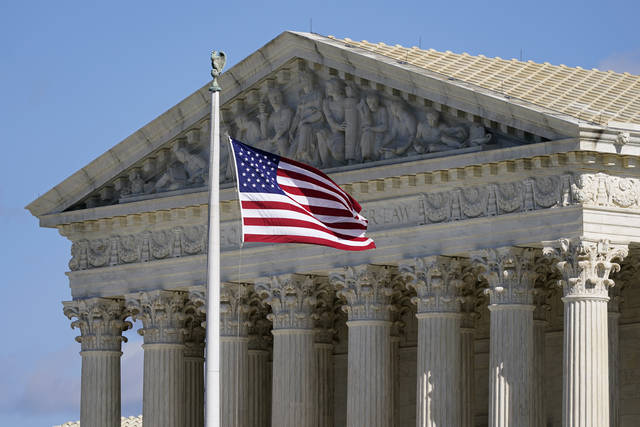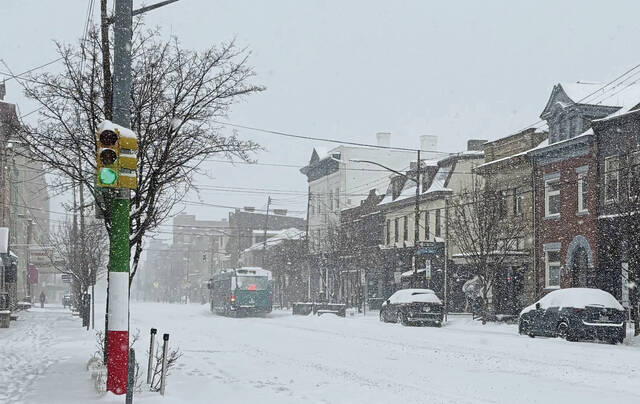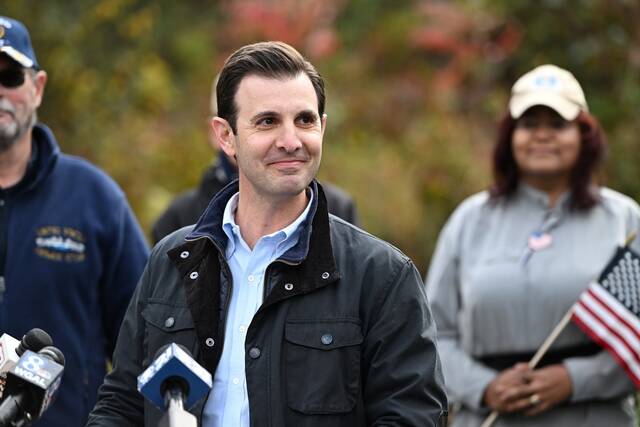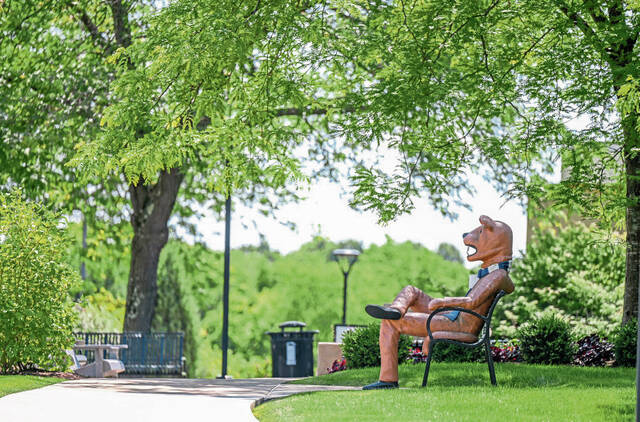The U.S. Supreme Court on Tuesday afternoon denied an attempt by U.S. Rep. Mike Kelly and other Republicans to challenge Pennsylvania’s mail-in voting system.
The denial likely puts an end to the Trump campaign’s efforts to throw out the state’s election results that declared President-elect Joe Biden the winner.
The court issued its order on the matter Tuesday afternoon. There was no opinion or explanation.
“The application for injunctive relief presented to Justice [Samuel] Alito and by him referred to the Court is denied,” it said.
University of Pittsburgh constitutional law professor Jerry Dickinson said the fact that there is no comment with the order is telling.
“That’s the purest and strongest statement thus far that it will not wade into this election,” he said.
The order came several hours after attorneys for Pennsylvania’s election officials told the the court that granting the injunction would “sow chaos and confusion” across the nation. They argued Kelly, R-Butler, and GOP congressional candidate Sean Parnell of Ohio Township, along with the other petitioners, had no federal claim for which the court could get involved — and no standing on which to bring it.
Kelly and Parnell, who challenged U.S. Rep. Conor Lamb, D-Mt. Lebanon, in the November election, were among those who filed a complaint in Commonwealth Court against Gov. Tom Wolf, Secretary of State Kathy Boockvar and the General Assembly on Nov. 22. They alleged Act 77, which broadened the state’s mail-in voting laws, was unconstitutional under Pennsylvania law. Instead, they said, the only way to change the state’s absentee voting was through a constitutional amendment.
In their petition, they sought either to have the 2.6 million votes cast by mail-in ballot disqualified or for the court to throw out all of the election results so the Republican-controlled Legislature could appoint Pennsylvania’s electors for president.
Biden won Pennsylvania by 81,000 votes.
The state Supreme Court threw out the petitioners’ claims, saying they were time-barred and that Act 77 required any constitutional challenges to be filed within 180 days of its October 2019 passage.
After losing in the state Supreme Court, the petitioners filed for injunctive relief with the U.S. Supreme Court.
Justice Alito, who oversees emergency filings for Pennsylvania, initially set a response deadline for Pennsylvania’s officials for Wednesday — the day after the federal Safe Harbor deadline.
That date signaled to many constitutional scholars it was unlikely the court would upend Pennsylvania’s election results once the Safe Harbor date had passed.
On Sunday, Alito updated the schedule and required Pennsylvania officials to respond by 9 a.m. Tuesday.
In their response, attorneys for the state wrote that the petitioners’ claims are “fundamentally frivolous,” and that the remedy they seek is unheard of.
“Petitioners ask this court to undertake one of the most dramatic, disruptive invocations of judicial power in the history of the Republic,” they wrote. “[T]o say that the public interest militates against petitioners would be a grave understatement.”
In their filing, the respondents said Kelly, Parnell and the other petitioners failed to state any federal claim to the Pennsylvania courts, and that therefore the U.S. Supreme Court has no jurisdiction to even take up the case.
In addition, they wrote the petitioners’ claims are barred because the relief they seek — to overturn Pennsylvania’s election results — is retroactive, which is forbidden under laches, the doctrine that forbids claims based on unreasonable delay.
Further, they wrote that voters reasonably relied on the election rules in place at the time they voted, and therefore, there cannot be retroactive disenfranchisement. Under that principle, the respondents said the U.S. Supreme Court has “declined to overturn election results even where it later found flaws in the election process.”
The state officials argue Act 77 could have been challenged by the petitioners much sooner than nearly 13 months after it was enacted.
They claim that, instead, the petitioners waited until after two elections — and after their candidate for president lost — to file a challenge.
As to the substance of their claim — that the General Assembly had no right to alter Pennsylvania’s mail-in voting process — the state officials disagree, saying that the only limitation on them in altering the law was to maintain secrecy in the voting process. That, they said, was accomplished by Act 77’s requirement for mail-in voters to use a secrecy envelope.
Attorneys for the state said the petition comes against a backdrop nationally of unfounded claims of fraud that “wrongly impugn the integrity of the democratic process and aim to cast doubt on the legitimacy of its outcome.”
“Their suit is nothing less than an affront to constitutional democracy,” they said. “It should meet a swift and decisive end.”
Since the Nov. 3 general election, there have been dozens of legal challenges to results in Pennsylvania and across the country. Many of those challenges have alleged fraud, although no court has found any widespread examples of that.
”While the rule of law prevailed and the court rightly rejected relief, the onslaught of election litigation broadly speaking may have an indelible, and perhaps irreparable, negative impact on public perception of our electoral system,” Dickinson said.








